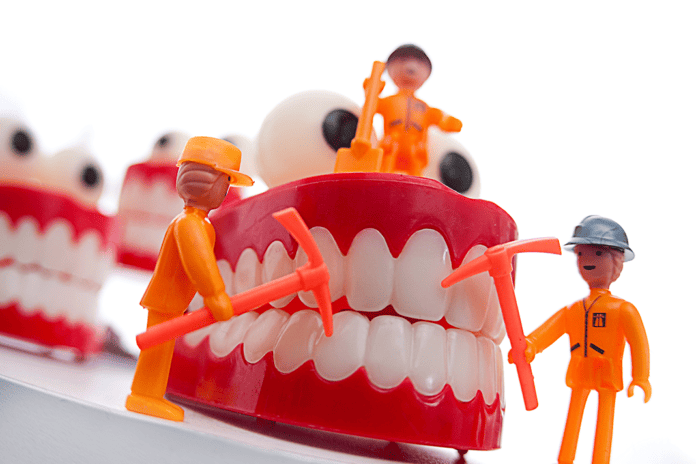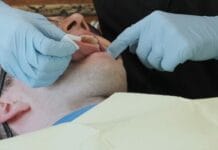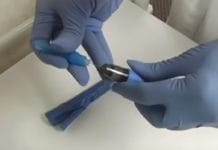Since I’ve started at this office, I feel I have seen too many FMD patients. Patients that I believe, and have been treatment planned, as an adult prophy, however, the doctor is diagnosing as needing an FMD first. Patients that come in with heavy supragingival calculus and moderate/heavy plaque, I can understand in order to remove deposits for an accurate diagnosis by the doctor, but not healthy patients. I don’t hear a lot about FMDs and would really like to get more info before leaving this practice over this issue. And do insurance companies cover FMDs?
By your description, I’d probably question this too. As you said, if a patient has too much debris, calculus, plaque, material alba, etc. for a doctor to complete an exam, a full mouth debridement is appropriate. However, I can’t imagine a patient with healthy tissue, treatment planned as a prophy, needing an FMD. At the very least, a patient with this much debris would need to be treatment planned for gingivitis treatment (D4346) or non-surgical periodontal therapy/SRP (D4341/4342) because infection would most likely be present, generally speaking
If the doctor is able to complete an exam, I don’t see any real need for an FMD. I go straight to definitive treatment (SRP or gingivitis treatment) and forego the FMD for many reasons. Just a few of these reasons are because after an FMD a patient might feel like they’ve had a “cleaning” so they won’t return for definitive treatment. Also, the tissue can tighten up making periodontal pockets harder to access and instrumentation more difficult during definitive treatment. A third reason I prefer to go straight to definitive treatment and skip an FMD is the risk of a periodontal abscess if tissue heals around remaining calculus or a deposit that was dislodged and pushed into the soft tissue.
While periodontal abscesses can occur with or without periodontal disease or instrumentation, I personally wouldn’t feel at all comfortable if a patient returned with a periodontal abscess possibly because they weren’t scaled to completion, therapeutically, in the first place. This especially if an FMD wasn’t really needed. If this happened, and a patient needed antibiotics, draining of the abscess, or possible surgery (flap procedure) to remove the irritant (calculus), that would not be a good outcome of FMD. Even further, if too much tissue damage has occurred, and there’s been a poor response to therapy leading to the tooth needing to be extracted, as the clinician that treated them, I wouldn’t feel that great. Now granted, I’m an advocate for patients taking responsibility for their health and the clinician isn’t at fault because the patient neglected their homecare which led to their disease state. However, with being a health care professional comes empathy, which is sometimes a double-edged sword.
Again, based on your description, this may be a case of the doctor not fully understanding what a full mouth debridement is, or they are treatment planning FMD to increase production revenue. I’ve heard from many hygienists, and I’ve come across offices/doctors myself, who treatment plan FMDs to boost production because patients don’t know any better, so they don’t question it. To me, this is unethical and equates to over-treatment. Whether an office/doctor doesn’t understand the code/procedure or is trying to boost production, either way, it’s unacceptable in my book.
Whether insurance covers an FMD depends on the patient’s insurance carrier and specific plan. Many do, but some only cover one FMD per lifetime. Further, the FMD code (D4355) states it is not to be completed on the same day as an exam, meaning the patient has to return for multiple appointments. The question to this, as mentioned before, is will the patient actually return, because to them, they feel they have had a “cleaning.” So basically, whether it’s covered under a patient’s dental benefits depends on the specific insurance coverage of the patient. This is why I feel every patient should have an insurance breakdown before even sitting in your chair.
I would suggest speaking with the doctor about your concerns to see if you two can get on the same page regarding hygiene treatment protocols and patient care standard. Maybe the doctor just needs to be educated on the need for FMD; you don’t know until you have a chat. On the other hand, if a lack of understanding isn’t the case, and you don’t share the same protocols and patient care standard, it may be time to move on from the practice. Best of luck, this isn’t a fun situation!
For further reading on full mouth debridement, check out this excellent article by Melissa Turner, CPDH, EFDA, BASDH, here.












